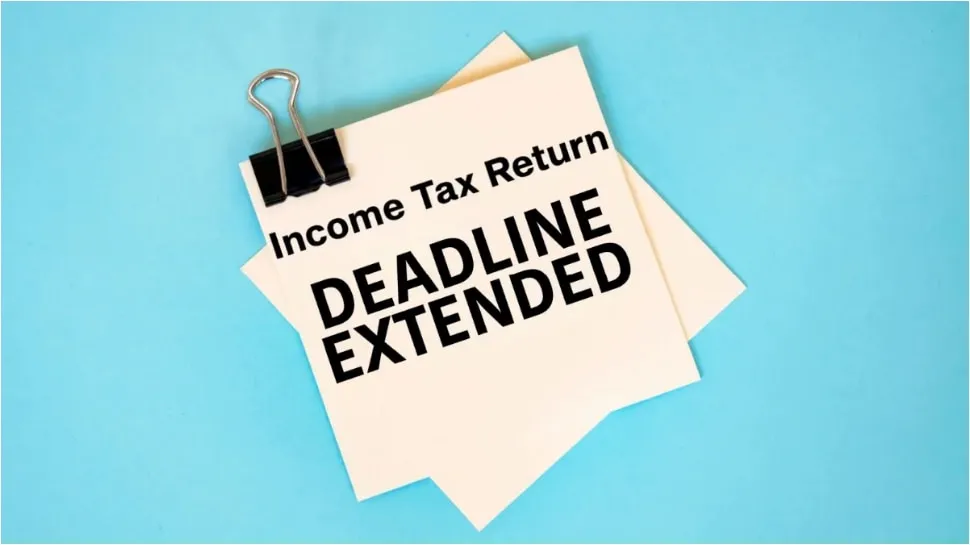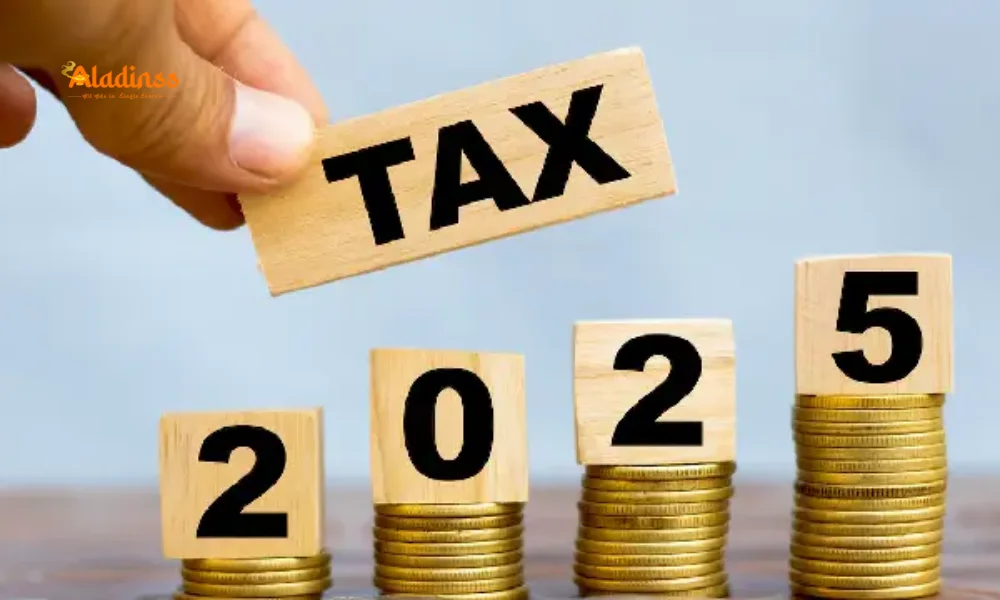ITR Filing Deadline Extended by One Day: CBDT Announces Relief for AY 2025-26

ITR Filing Deadline Extended by One Day: CBDT Announces Relief for AY 2025-26
The Central Board of Direct Taxes (CBDT) has announced a one-day extension for filing Income Tax Returns (ITR) for the Assessment Year (AY) 2025-26, moving the deadline to September 16, 2025. This breaking news provides critical relief to millions of taxpayers, including salaried individuals and small businesses, following technical glitches that crashed the e-filing portal on September 15, 2025. Initially set for July 31, the deadline was previously extended to September 15 due to updates in ITR forms. With over 7.3 crore returns filed, surpassing last year’s 7.28 crore, this latest development ensures taxpayers avoid immediate penalties amid the portal’s challenges.

Why Was the ITR Deadline Extended?
The ITR filing process for AY 2025-26, covering income earned in FY 2024-25, faced significant hurdles as the September 15 deadline approached. The e-filing portal, managed by the Income Tax Department, experienced severe technical issues due to a massive influx of last-minute filings. Reports indicate that the portal crashed repeatedly, with users facing slow loading times, server timeouts, and difficulties accessing Annual Information Statements (AIS) or verifying returns. These disruptions prompted the CBDT to conduct emergency maintenance from 12:00 AM to 2:30 AM on September 16, 2025, to stabilize the system.
The one-day extension was announced to address these challenges, ensuring that taxpayers affected by the glitches could file without immediate penalties. This decision came after significant public and professional outcry, with chartered accountants and taxpayers voicing concerns on social media using hashtags like #ITRDeadline and #IncomeTax. The extension reflects the CBDT’s responsiveness to public feedback, providing a buffer for those struggling with the portal’s performance.
Background of the 2025 ITR Filing Season
The ITR filing season for AY 2025-26 began with a deadline of July 31, 2025, for non-audit cases, including salaried individuals, freelancers, and small businesses under presumptive taxation. In May 2025, the CBDT extended this to September 15 to accommodate revisions in ITR forms, which introduced new reporting requirements under the Finance Act, 2025. These changes included enhanced disclosures for deductions like Sections 80C and 80D, as well as options to switch between the old and new tax regimes, necessitating updates to filing utilities.
The extended deadline saw unprecedented participation, with over 7.3 crore returns filed by September 15, compared to 7.28 crore for AY 2024-25. This surge reflects growing tax compliance in India, driven by digital initiatives and awareness campaigns. However, the high volume overwhelmed the e-filing portal, leading to the technical issues that prompted the latest one-day extension.
Impact on Taxpayers
The one-day extension primarily benefits non-audit taxpayers, including salaried employees, Hindu Undivided Families (HUFs), and small businesses under Sections 44AD, 44ADA, or 44AE. These groups, who form the majority of ITR filers, faced the brunt of the portal’s technical issues. The extension allows them to complete filings, verify returns, and claim deductions without the immediate threat of penalties. For instance, salaried individuals can ensure accurate reporting of Form 16 data, while freelancers can confirm income from multiple sources.
Chartered accountants and tax professionals have welcomed the move, as it alleviates the pressure of last-minute submissions. However, audit cases, with a deadline of October 31, 2025, remain unaffected, though delays in non-audit filings could impact their workflows. The extension also aligns with the advance tax payment deadline, allowing taxpayers to address both obligations without added stress.
Penalties for Late Filing
Starting September 17, 2025, taxpayers missing the extended deadline will face penalties under Section 234F of the Income Tax Act. A late filing fee of Rs 5,000 applies, reduced to Rs 1,000 for those with taxable income up to Rs 5 lakh. Additionally, interest at 1% per month under Section 234A will accrue on unpaid taxes from August 1, 2025. Belated returns can be filed until December 31, 2025, but may result in loss of deductions like Sections 80C and 80D, and potential scrutiny from the Income Tax Department.
The CBDT has emphasized that timely filing ensures faster refunds and avoids complications. Taxpayers are urged to use the extended deadline to complete their filings, consulting professionals if needed to minimize errors and liabilities. This structure incentivizes compliance while providing flexibility for those affected by technical disruptions.
How to File ITR Before the New Deadline
To make the most of the extended deadline, taxpayers should follow a streamlined process. Start by logging into the e-filing portal using your PAN and password, ensuring compatibility with browsers like Chrome or Firefox. Select the appropriate ITR form—ITR-1 for salaried individuals with income up to Rs 50 lakh, ITR-2 for capital gains, or ITR-3 for business income. Pre-fill data from AIS and Form 26AS, and verify deductions for investments like PPF, ELSS, or insurance under Section 80C.
After submission, e-verify within 30 days using Aadhaar OTP, net banking, or Digital Signature Certificate (DSC). Given the maintenance window from 12:00 AM to 2:30 AM on September 16, filings should be completed outside this period. For persistent issues, offline Excel utilities for ITR-1 to ITR-7 are available on the Income Tax website, offering a reliable alternative. This approach ensures accurate and timely submission, maximizing compliance benefits.
Public and Professional Reactions
The extension has sparked varied reactions across social media, with hashtags like #ITRDeadline and #IncomeTax trending. Taxpayers expressed relief, but many criticized the short one-day buffer, citing recurring portal issues. Posts on platforms like X highlighted frustrations with server crashes and demands for longer extensions. The Income Tax India account’s announcement saw significant engagement, reflecting the topic’s importance to millions of filers.
Chartered accountants and tax consultants have praised the CBDT’s responsiveness but urged for long-term solutions, such as enhanced server capacity and AI-driven support. The overlap of ITR and advance tax deadlines has also been a point of contention, as it increased compliance pressure. These reactions underscore the need for robust digital infrastructure to support India’s growing tax base.
Implications for Tax Compliance
The record-breaking 7.3 crore filings for AY 2025-26 highlight India’s progress in tax compliance, driven by digital initiatives like e-filing and pre-filled forms. The extension reinforces the CBDT’s commitment to supporting taxpayers, particularly during unforeseen disruptions. However, recurring portal issues point to the need for scalable infrastructure to handle peak filing periods, especially as India’s taxpayer base grows.
Timely ITR filing offers benefits like faster refunds, eligibility for carry-forward losses, and improved loan approvals. The CBDT’s proactive measures foster trust, encouraging voluntary compliance amid economic expansion. This extension serves as a reminder for taxpayers to plan filings early, leveraging tools like AIS and Form 16 to streamline the process.
Tips to Avoid Future Filing Challenges
To prevent last-minute issues, taxpayers should collect documents like Form 16, bank statements, and investment proofs early. Using AIS for pre-filled data reduces errors, while choosing the appropriate tax regime—new for simplicity or old for deductions—optimizes savings. Engaging tax professionals for complex cases ensures accuracy, minimizing scrutiny risks.
Regularly checking the e-filing portal and using multiple devices can bypass technical glitches. Filing well before the deadline, ideally in July or August, avoids the rush and ensures timely refunds. These practices transform tax season into a manageable task, aligning with India’s push for a robust tax ecosystem.
Comment / Reply From
No comments yet. Be the first to comment!







